News
Leibrock Receives Fulbright Fellowship

Idaho State University’s Larry Leibrock, a political science research fellow at the ISU Informatics Research Institute, has been awarded a Fulbright-Shuman Fellowship to conduct research and teach for six months at Oxford University, England, starting in January.
This is the second Fulbright award given to an ISU Informatics Research Institute employee in the last three years. Cory Schou, director of the IRI and associate dean of the College of Business, was selected for a Fulbright Specialist project in New Zealand at University of Waikato in the summer of 2014.
Leibrock is doing a second doctorate in political science at ISU based on his research while at Oxford, which he should have completed by August. While at ISU, Leibrock has been part of the IRI’s National Information Assurance Training and Education Center, teaching digital forensics and information assurance.
The focus of Leibrock’s Oxford research will be on European Union Data Protection Directive (EPIC.org) and U.S. Homeland Security.
“I intend to focus my research and teaching in the topics of terrorism, surveillance/privacy and information security at the U.S. and international level,” Leibrock said. “I want to blend both undergraduate and graduate courses making use of case-discussion and flipped classroom pedagogies.”
Leibrock is a disabled war veteran who served in Afghanistan and Iraq. He earned his first doctoral degree from the University of Texas in computer science.
The Fulbright-Schuman Program, administered by the Commission for Educational Exchange between the United States and Belgium, is jointly financed by the U.S. State Department and the Directorate-General for Education and Culture of the European Commission. The program funds graduate and post-graduate study, research, and lecture proposals in the field of U.S.-EU relations, EU policy, or EU institutions for interested American and EU citizens.
TRIO Receives $1.2 Million for New Center
About 1,000 adults in five counties across south-central Idaho will have further access and opportunity to higher education through Idaho State University’s new five-year, $1.2 million TRIO grant to create an Educational Opportunity Center.
The Educational Opportunity Center will serve non-traditional students across the counties of Cassia, Twin Falls, Minidoka, Gooding and Jerome.
ISU TRIO executive director Sari Byerly said having a TRIO Educational Opportunity Center in south-central Idaho will be a huge benefit to its residents. Byerly noted that many of the logistics of higher education make sense to those who are in it, but can be daunting to those who have never had to navigate it.
“We sling words like FAFSA around all the time, but not everyone knows what that means or to go online to process an admissions application, for example,” Byerly said. “Everything in higher education assumes that people are traditional and have learned computer skills, but that’s not always the case.”
Another primary goal of the EOC will be to assist participants who do not have a GED or secondary school diploma.
“My estimate is that 100 out of the 1,000 participants will come to us without that credential,” Byerly said. “We will not only help participants obtain that credential, but assist them with college admissions applications, financial aid applications, and post-secondary enrollment.”
TRIO will work with these participants as long as necessary to get them ready to enroll in college.
This grant will be especially beneficial for this area because of the five counties it will reach, 86 percent of the population has not earned a bachelor’s degree.
The Educational Opportunity Grant is the third major grant the TRIO office has received this year.
Endowed Fund Established for Retired ISU-Meridian Campus Leader
Bessie Katsilometes retires from Idaho State University after three decades
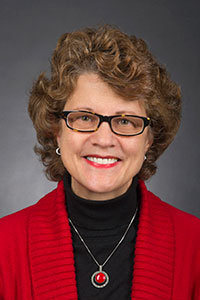
Bessie Katsilometes, Ph.D., retired Sept. 16 from Idaho State University after 30 years of service, most recently as associate vice president of university programs at the ISU-Meridian Health Science Center.
She was instrumental in the construction and development of the Meridian campus, which opened in 2009 and now offers more than two dozen graduate, undergraduate and doctoral programs in the health professions.
As associate vice president, Katsilometes was in charge of the daily operations of the Meridian campus, which serves more than 1,000 students and working professionals. She also oversaw the construction and design of the L.S. and Aline W. Skaggs Anatomy and Physiology Laboratories, which opened in fall 2015.
Katsilometes has held numerous positions at ISU, including leadership posts in community outreach, enrollment planning, recruitment, student services, fundraising and academic administration. From 1999-2004, she was director and special projects coordinator of ISU’s Center for New Directions, a program that provides support services and career counseling to community members and students facing economic and personal challenges.
Katsilometes described her career at ISU as “an amazing journey, a labor of love,” enabling her to nurture a love for higher education and give back to students.
She holds a bachelor’s degree in social work and a master’s degree in public administration from ISU. In 2010, she earned a Ph.D. in humanities with a concentration in transformative studies from San Francisco’s California Institute of Integral Studies.
ISU Gains Approval to Study Feasibility of Relocating Some College of Technology Programs to Former RISE Complex
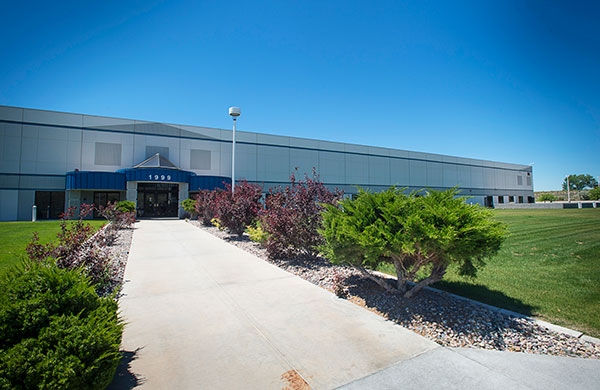
The Idaho State Board of Education recently approved a motion by Idaho State University to begin engineering and cost estimating the relocation of some College of Technology programs to the former Research and Innovation in Science and Engineering (RISE) Complex.
The move by the College of Technology will enable the University to meet a growing enrollment in career and technical education, and it will expand existing classroom and laboratory space.
“We will be able to expand enrollment for Idaho students and provide a world-class career and technical education center,” said Scott Rasmussen, dean of the College of Technology.
“We have a tremendous opportunity to reallocate space in the RISE Complex, which will create a number of synergistic opportunities for STEM-related programs at ISU,” he said. “Moving these programs into this space will not only increase enrollment but enable programs to work closely together to provide opportunities for regional industries. These collaborations support opportunities for ISU to do technical research, prototyping and product testing under one roof.”
ISU programs that could be relocated include diesel, on-site power, computerized machining, welding, drafting and a number of related programs, as well as administrative and support offices. ISU plans to create a state-of-the-art career and technical education center that will provide synergy with workforce and industry partners.
Further state board approval will be required at the completion of the engineering and cost estimation work prior to implementing the move of programs.
Geosciences Researcher Earns Early Career Award from National Science Foundation
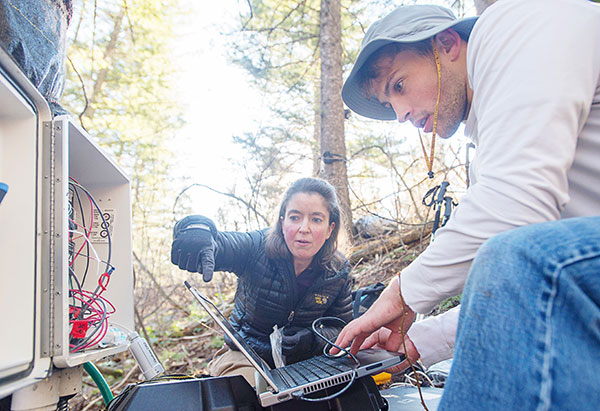
Idaho State University Geosciences Assistant Professor Sarah Godsey has received one of the most prestigious awards in support of early-career faculty awarded by the National Science Foundation. Her award includes more than $500,000 to study streams and stream channels for five years.
The award is part of the NSF’s Faculty Early Career Development Program (CAREER). According to the NSF, the award is given to faculty who have the potential to serve as academic role models in research and education and to lead advances in the mission of their department or organization.
“I was really excited to receive this award,” Godsey said. “It’s a testament to the great students and colleagues that I’ve had the chance to work with here at ISU so far. Over the next few years, we’ll work to provide cutting-edge insight into how western streams wet up and dry out.”
The title of Godsey’s CAREER award is “Active Learning Across Interfaces: Controls on Flow Intermittency and Water Age in Temporary Streams.” More than one-third of the U.S. population relies on temporary streams, those that don’t always have water flowing through them, for their water supply. Both the U.S. Supreme Court and the Environmental Protection Agency have noted the importance of understanding these streams to ensure fishable, swimmable and drinkable waters throughout the country. Surprisingly, scientists can’t exactly predict where and when streams will run dry and how flows vary from year to year.
“This project will address that gap by mapping where streams are flowing, and linking these maps to expected controls including rainfall, snowmelt, plant water use, and below-ground characteristics,” Godsey said. “We will collect water samples to test whether these different controls on flow affect water quality. These samples will also indicate how long ago the stream water fell as rain or snow, which may affect how often a stream dries up. In addition, the project will train a diverse group of students from elementary school through graduate school in cutting-edge temporary stream science.“
The project will also develop new courses to train college students in environmental field methods and to engage river guides in sharing temporary stream science with whitewater enthusiasts. Later in the project, hundreds of Idaho elementary school students who visit McCall Outdoor Science School will also learn about streams that run dry.
Arts and Letters to Bring Dual Enrollment On Campus
Idaho State University’s College of Arts and Letters will bring 90 high school students to take dual-enrollment credits on campus with ISU professors this fall.
Thirty seats are open to each of Pocatello’s three high schools, allowing students to take college-level courses during non-peak hours. The courses are part of ISU’s core objectives and count toward general education requirements once students are admitted to ISU. Students will pay $65 per course, which comes out of their school district’s Fast Forward program funds.
“We are excited to be able to bring students to campus and see what ISU is all about,” said Kandi Turley-Ames, College of Arts and Letters dean. “We hope that they will see our courses and professors are top notch, and want to continue on to get their degrees from ISU.”
Classes are available in anthropology, English, history, philosophy, political science, international studies, theatre, dance and art. Each course is taught by faculty members who have received outstanding teacher and researcher awards, or are popular with current undergraduate students.
College of Business to Offer New Program in Fall 2017
The Idaho State University College of Business will offer a Master of Taxation (MTax) degree beginning in the Fall 2017 semester.
“Experts in taxation are in demand in Southeast Idaho and nationally,” said Daniel Ames, chair of the accounting department and associate dean. “There simply aren’t enough tax experts available locally or nationally. This degree program will help bridge that gap and provide another outstanding career path for our students.”
The MTax program will complement the ISU College of Business’ successful Master of Accountancy (MAcc) program by offering students interested in pursuing a career in taxation a more specified degree in the field. According to Ames, the MTax will inherit the same unique structure as the MAcc in preparing students for the four parts of the Certified Public Accountants (CPA) exam, which has resulted in an 88 percent first-time pass rate among MAcc students over the last three years.
Students joining the MTax program can complete their degree in just one year – taking two eight-week courses at a time throughout the fall and spring semesters along with a summer course and capstone courses offered periodically during the 12-month program helping to prepare students for the CPA exam. Students will also receive specialized training in individual, corporate and partnership taxation as well as estate planning.
Additionally, students have the option to graduate with both an MTax and Master of Business Administration (MBA) degree with one extra semester of study and a slightly different semester course structure.
Psychology Professor Studies Drug Therapy
Joshua Swift, Idaho State University assistant professor of psychology, was recently a lead researcher on a study regarding patients’ likelihood to refuse drug therapy more than psychotherapy for mental health treatment. The review of research published by the American Psychological Association said that people seeking help for mental disorders are more likely to refuse or not complete the recommended treatment if it involves only psychotropic drugs.
Investigators conducted a meta-analysis of 186 studies of patients seeking help for mental health issues that examined whether they accepted the treatment that was recommended and if they did, whether they completed it. Fifty-seven of the studies, comprising 6,693 patients, had a component that reported refusal of treatment recommendations, and 182 of the studies, comprising 17,891 patients, had a component reporting premature termination of treatment.
After diagnosis, patients in the studies were recommended to drug-only therapy (pharmacotherapy), talk therapy (psychotherapy) or a combination of the two.
“We found that rates of treatment refusal were about two times greater for pharmacotherapy alone compared with psychotherapy alone, particularly for the treatment of social anxiety disorder, depressive disorders and panic disorder,” said Swift. “Rates of premature termination of therapy were also higher for pharmacotherapy alone, compared with psychotherapy alone, particularly for anorexia/bulimia and depressive disorders.”
The research was published in the APA journal “Psychotherapy.”
Researcher Finds Lower Injury Rates on Turf vs. Grass
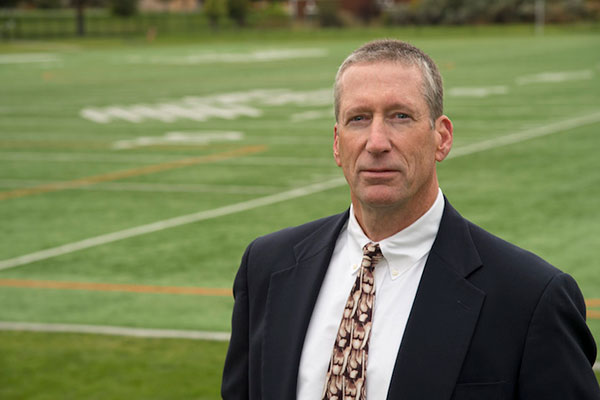
Idaho State University faculty member Michael Meyers has published research findings that conclude there is a significantly lower injury rate for collegiate men’s soccer athletes playing on FieldTurf, a type of artificial turf, versus playing on natural grass.
Meyers, an associate professor of sports science and physical education, published “Incidence, Mechanisms, and Severity of Match-Related Collegiate Men’s Soccer Injuries on FieldTurf and Natural Grass Surfaces: A 6-Year Prospective Study” in the Nov. 21 issue of The American Journal of Sports Medicine.
“Although similarities existed between FieldTurf and natural grass during competitive match play, FieldTurf is, in many cases, safer than natural grass when comparing injuries in collegiate men’s soccer,” Meyers said.
He qualified this remark by saying the findings of this study, however, may not be generalized and applied to other levels of competition or to other artificial surfaces.
Meyers studied male soccer athletes from 11 NCAA Division I universities over six seasons. He evaluated 765 games for the match-related injuries playing on the two surfaces.
Of the 765 games, 380 were played on FieldTurf and 385 were played on grass. There were 722 injuries, with 37 percent occurring on FieldTurf and 63 percent occurring on natural grass.
Meyers’ analyses also indicated significantly less trauma on FieldTurf when comparing severity of injury, injury category, time loss, player position, injury mechanism and situation, injuries under various environmental conditions, cleat design, turf age, anatomic location and elective medical procedures.
“More than 1 million athletes play competitive soccer in the United States. Unfortunately, with this volume of competition, the number of injuries is rising, and the cost of treatment and rehabilitation is reaching into the millions of dollars each year,” Meyers said. “Coupled with this is the psychological trauma and setbacks in training, and the potential for long-term degenerative changes typically experienced by athletes after a significant injury. Therefore, the results of this study that have identified factors that predispose soccer athletes to these injuries should provide some guidance when selecting playing surfaces in the future.
The Support of a Team
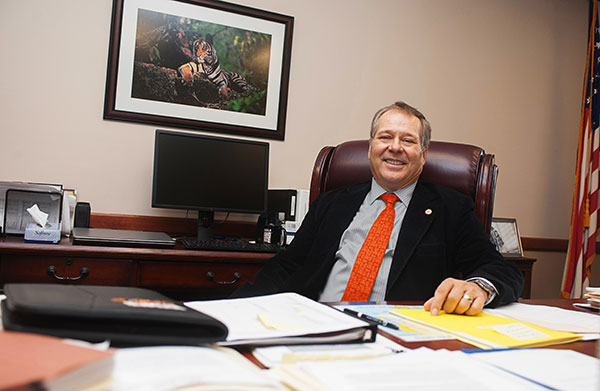
A well-known fact of education and learning is that none of us can do it on our own. All of us have at least one teacher, faculty member, mentor, advisor or fellow student who helped us along the way.
At Idaho State University, we are a community of innovative faculty, driven students, generous alumni and community members who care about and support the education we provide.
In this issue of Idaho State University magazine, we honor members of our Bengal community. You will find a story on the Kasiska family, who have not only changed the lives of hundreds of students with their scholarship gifts, but did their part to help alleviate health care shortages in our communities. You will also find the story of Dr. Linda Hatzenbuehler, the founding dean of the Division of Health Sciences, and a woman who has devoted her career to educating generations of health care professionals.
We honor our outstanding student award winners who are graduating this spring and leading more than 2,000 new Bengal alumni out into the world to make a difference. We honor our outstanding faculty members for their teaching, community service and research. We honor our alumni, who embody the Bengal spirit in their careers.
I am grateful for our Bengal community. As we finish one academic year, and begin another, I invite you to share your ISU experience with a future Bengal. It could be the beginning of something great.
President Arthur Vailas

